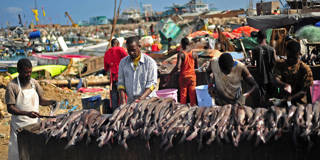Somalia's recent success in completing the IMF and World Bank's Heavily Indebted Poor Countries Initiative is a testament to the power of multilateralism. But the country still faces massive challenges that will require prudent domestic governance and ongoing support from regional and global actors.
CAIRO – On December 13, 2023, Somalia reached the completion point of the Heavily Indebted Poor Countries Initiative (HIPC), becoming the 37th country to benefit from the program. With the goal of ensuring manageable debt burdens for poor countries, the HIPC, established by the International Monetary Fund and the World Bank, offers debt relief to countries that will use the saved funds for programs to benefit the poor and drive progress toward achieving the Sustainable Development Goals (SDGs).

CAIRO – On December 13, 2023, Somalia reached the completion point of the Heavily Indebted Poor Countries Initiative (HIPC), becoming the 37th country to benefit from the program. With the goal of ensuring manageable debt burdens for poor countries, the HIPC, established by the International Monetary Fund and the World Bank, offers debt relief to countries that will use the saved funds for programs to benefit the poor and drive progress toward achieving the Sustainable Development Goals (SDGs).